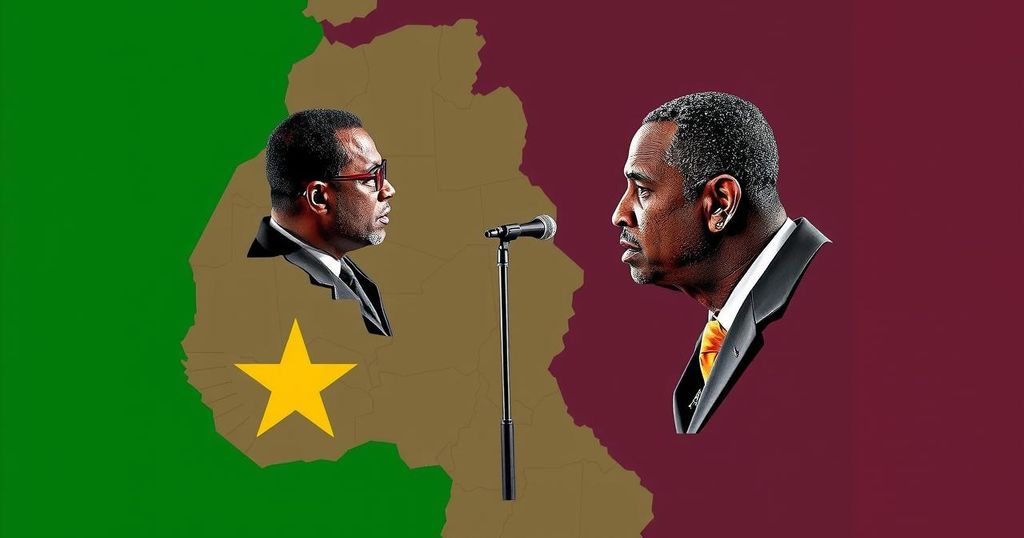President Hassan Sheikh Mohamoud of Somalia threatens regional stability with his policies towards Somaliland and Ethiopia. His refusal to recognize Somaliland’s self-determination and attempts to block Ethiopia’s access to Red Sea ports could destabilize partnerships in the Horn of Africa. Somaliland has established itself as a peaceful and economically viable region, essential for Ethiopia’s trade. Mohamoud’s actions risk escalating tensions and affecting over 120 million lives, while unaddressed, internal turmoil within Somalia endangers its own governance. International support for Somaliland’s autonomy is vital for regional peace and development.
The intricate historical, political, and economic tapestry of the Horn of Africa continually influences its power dynamics. Currently, a significant threat to this precarious stability emanates from President Hassan Sheikh Mohamoud of Somalia, whose policies jeopardize the livelihoods of over 120 million individuals and the future of relations between Somalia and Ethiopia. His refusal to recognize Somaliland’s right to self-determination, coupled with his attempts to obstruct Ethiopian access to Red Sea ports, threatens to undermine long-established alliances and exacerbate regional tensions. Somaliland, having seceded from Somalia in 1991, has evolved into an autonomous state characterized by functional democratic institutions and notable economic advancement. Strategically located near Ethiopia, Somaliland has established numerous international agreements, notably with the United Arab Emirates regarding the management of Berbera Port by DP World. This has solidified Somaliland’s position as a pivotal regional economic actor, particularly as approximately 40 million Ethiopians depend on these critical trade routes. President Mohamoud’s actions, aimed at impeding Somaliland’s progress and imposing economic sanctions, not only jeopardize Somaliland’s development but also threaten the economic stability of Ethiopia. His stance has been perceived as a grave political miscalculation with the potential to rekindle tensions in the Horn of Africa, particularly with Ethiopia, a fundamental player in the region’s stability. Ethiopia’s longstanding necessity for reliable access to Red Sea ports is integral to its geopolitical aspirations; thus, attempts to inhibit this access could incite animosity. The situation is further complicated by Somalia’s enduring internal turmoil, which has persisted for over three decades through civil strife, terrorism, and foreign interventions. In comparison, Somaliland has experienced relative peace and growth, while Somalia finds itself still reliant on African Union forces to mitigate Al-Shabaab insurgencies. President Mohamoud’s prioritization of undermining Somaliland rather than addressing Somalia’s own debilitating crises risks prolonging its struggles and obstructing the establishment of a stable government in the southern region. Additionally, the involvement of Egypt adds another layer of complexity to the situation. President Mohamoud’s alignment with Egypt within the tripartite agreement involving Egypt, Eritrea, and Somalia poses a significant risk to the regional balance. Egypt, motivated by its ambitions to safeguard Nile access, may exploit Mohamoud’s policies as a means of leveraging against Ethiopia, potentially instigating proxy conflicts, particularly in southern Somalia, thereby jeopardizing regional stability and delaying developmental efforts by decades. The international community must promptly intervene to advocate for Somaliland’s right to self-determination and promote economic collaboration with Ethiopia. The economic partnership between Somaliland and Ethiopia holds immense potential, with prospects for trade benefiting an extensive demographic of 120 million individuals. It is imperative to ensure that jealousy, religious discrimination, or personal vendettas do not obstruct this progress. In summary, President Mohamoud’s policies threaten to forge a legacy of conflict and instability across the Horn of Africa. His refusal to acknowledge Somaliland’s autonomy and his antagonistic approach towards Ethiopia may ignite enduring hostilities, significantly reshaping the region’s geopolitical framework in the coming decades. To secure peace and foster development, it is essential to uphold and protect the partnership between Somaliland and Ethiopia.
The Horn of Africa is a region marked by intricate historical complexities and ongoing political and economic challenges. Specifically, the relationship between Somalia and Ethiopia has been fraught with tensions stemming from territorial disputes, varying political aspirations, and regional security concerns. Somaliland, a self-declared independent state from Somalia since 1991, has successfully established a stable governance framework and has actively pursued economic growth. The strategic geographic position of Somaliland is crucial to Ethiopia, which relies on access to ports for trade, especially in the context of its burgeoning economy and the needs of its population. President Hassan Sheikh Mohamoud’s administration in Somalia has undertaken policies that not only aim to weaken Somaliland’s efforts for recognition but also run the risk of catalyzing regional discord, as Ethiopia’s pivotal need for port access intertwines with local and international geopolitical aspirations. This divergence in interests among the Horn of African states potentially places the future of peace and economic cooperative growth in jeopardy.
In conclusion, President Hassan Sheikh Mohamoud’s policies pose a significant risk to the stability and prosperity of the Horn of Africa. His unwillingness to recognize Somaliland’s independence, combined with efforts to obstruct Ethiopian trade routes, can lead to renewed conflicts and exacerbated tensions in the region. The geopolitical landscape could dramatically shift if the international community does not affirm Somaliland’s rights and support its economic partnership with Ethiopia. It is crucial for peace to prevail, to allow for regional collaboration that promotes mutual development and benefits all parties involved.
Original Source: www.modernghana.com







